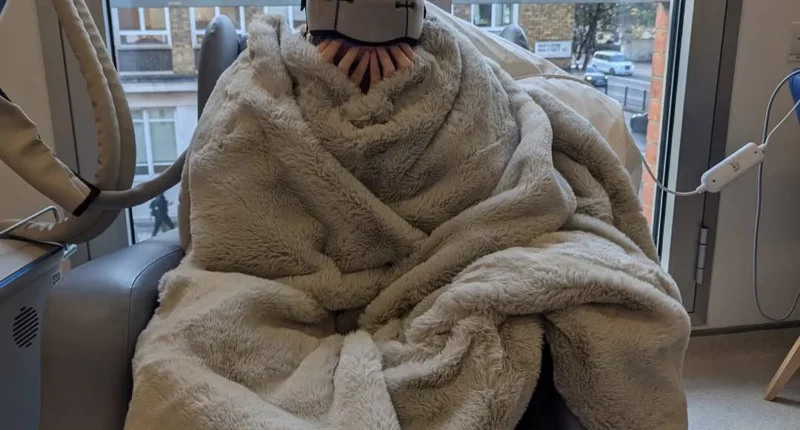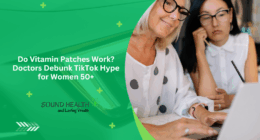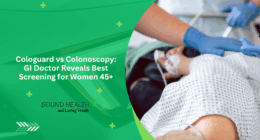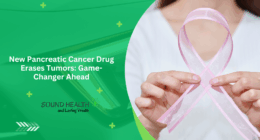When Morgan McGlynn Carr—a cheesemonger best known for her appearances on the UK morning show Sunday Brunch—discovered a lump in her breast, she did what most would: she booked a medical appointment. What followed, however, was a harrowing lesson in the fallibility of first impressions and the life-saving value of trusting your instincts.
Carr, 38, said she initially sought medical advice from two different doctors, both of whom dismissed the lump as nothing serious. “They told me I was fine,” she shared candidly, reflecting on how easy it would have been to stop there. But she didn’t. Instead, she pushed for a third opinion—a decision she now credits with saving her life. That third consultation revealed something far more serious: an invasive form of breast cancer.
:max_bytes(150000):strip_icc():focal(749x0:751x2):format(webp)/morgan-mcgylnn-carr-1-071025-1918a4c9601347579f8f0b8f00f394e3.jpg)
How Two Missed Diagnoses Nearly Cost a Life
The reality of delayed or missed cancer diagnoses is not as rare as many think. According to a 2023 study published by BMJ Quality & Safety, diagnostic errors affect an estimated 12 million adults in the U.S. annually, and breast cancer remains one of the top five conditions most frequently misdiagnosed.
In Carr’s case, the delay could have been deadly. The invasive nature of her cancer means that it had the potential to spread beyond the breast tissue, making early detection and treatment crucial. Her experience underscores an alarming truth: not all lumps are benign, and medical reassurance isn’t always conclusive.
This is especially important for younger women, who may be dismissed due to their age or lack of family history. Carr’s story serves as a warning that no one is exempt from the need for thorough investigation when something doesn’t feel right in their body.
“Good News” After Surgery — But the Fight Isn’t Over
Thankfully, Carr’s story has taken a more hopeful turn. After undergoing surgery, she recently received what she described as “good news,” suggesting that her treatment has been effective thus far. While she didn’t go into extensive detail about the type of surgery or further treatment, the relief in her voice and words was unmistakable.
Still, recovery isn’t just about physical healing. Mental and emotional resilience play a critical role. Carr’s public sharing of her journey not only humanizes the often-clinical narrative of breast cancer but also serves as an emotional checkpoint for thousands of others silently facing similar fears.
:max_bytes(150000):strip_icc():focal(599x0:601x2):format(webp)/morgan-mcgylnn-carr-3-071025-45a0ad0a0807406094b272d971a90b25.jpg)
Carr, 38, a food expert who owns London’s Cheeses of Muswell Hill, said that she’s been diagnosed with triple-negative breast cancer — an aggressive, invasive type of breast cancer, in an Instagram post detailing her treatment so far. And while she recently got some “very, very good news,” she said she wanted to share her journey to inspire others to check themselves and perhaps, “it could save a life.”
Why a Second (or Third) Opinion Is More Than Just a Backup Plan
There’s an outdated notion that seeking another medical opinion implies a lack of trust in healthcare providers. Carr’s journey flips that narrative on its head. Her persistence to go beyond the initial diagnosis wasn’t an act of defiance—it was self-preservation.
For many, second opinions can offer:
- Diagnostic confirmation or correction
- Broader treatment options
- Improved understanding of their condition
- Emotional reassurance and empowerment
A 2017 Mayo Clinic study found that as many as 88% of patients who sought a second opinion had a new or refined diagnosis. That data highlights the potentially life-changing—and life-saving—nature of listening to one’s gut and pursuing clarity when doubt lingers.
Breast Health Awareness: Early Detection Still Saves Lives
Carr is now using her platform to raise awareness about the importance of breast checks and self-advocacy. She urges women—and men—to become familiar with their bodies and speak up when something feels off.
Breast cancer remains one of the most commonly diagnosed cancers worldwide. In the UK alone, around 55,000 women are diagnosed every year, with 1 in 7 women developing the disease in their lifetime, according to Breast Cancer Now. Yet, when caught early, survival rates increase significantly, with over 90% of women diagnosed at stage one surviving at least five years post-diagnosis.
Regular self-checks are a key preventative tool. Here’s what to look for:
- A new lump or area of thickened tissue
- Changes in the size or shape of one or both breasts
- Discharge from either nipple (which may be blood-stained)
- A lump or swelling in either armpit
- Changes in the texture or appearance of the skin
Routine mammograms and screenings—especially for women over 40 or those with a family history—should not be skipped, and symptoms should never be ignored or downplayed, regardless of how healthy one may appear.
A Message of Hope and Strength
Morgan McGlynn Carr’s story is a poignant reminder that health is deeply personal—and so is the journey toward wellness. By sharing her experience, she’s helping to shatter the stigma around breast cancer and offering encouragement to anyone who feels unheard or uncertain in the healthcare system.
View this post on Instagram
Her parting message? “Check your breasts, ask questions, and don’t be afraid to push for answers.”
Because sometimes, the third opinion is the one that changes everything.
Don’t Miss | Halle Berry Reveals Her Misdiagnosed Menopause Symptoms as Herpes










